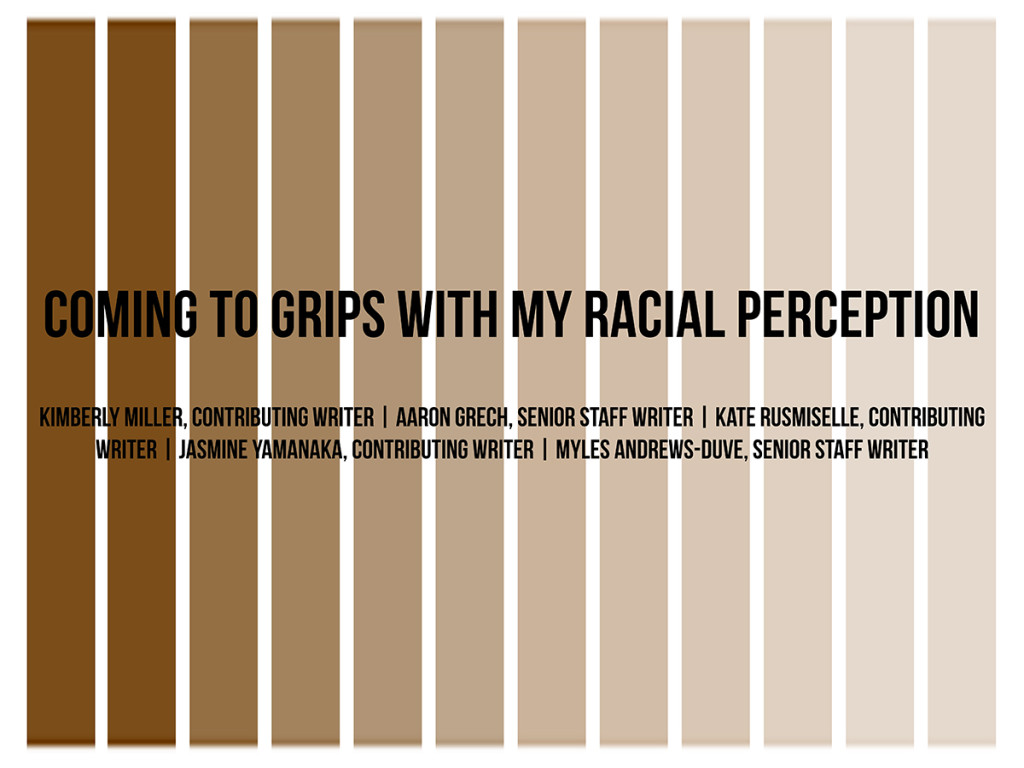
“What are you?” These three words compose the single most-heard question I am asked by the people I meet. Despite hearing it so often, I am still slightly insulted time after time. Isn’t there a better way to ask me what my ethnicity is?
Understandably, I am aware that my face is quite racially ambiguous and rarely have people assumed my correct ethnicity — half-Taiwanese and half-white for the record. Sometimes people are surprised by this — or in disbelief — which is frankly insulting.
As I grew older, I realized it was because I didn’t fit the popular preconception of a stereotypical “hapa.”
In America and esƒpecially among the Asian population, it seems as though “hapas,” “halfies” or “half-Asians” are often a very idealized ethnicity and expected to fit into a specific set of beauty standards. Generally, “hapas” are expected to be inhumanely attractive, unique and glorified. So much so, that some actually seek out to produce perfect “hapa” babies. People want to be or see a specific kind of “hapa,” the right combination. The perfect mix. When people are in disbelief that I am a “hapa,” it takes a toll on my own self-esteem. Their disbelief insinuates that I don’t fit into that category. Not only do I stand on the outskirts of the typical “hapa” world, but I am also an outsider to the two communities my ethnicity is composed of.
Oftentimes, multicultural children are given the opportunity to become immersed in a mix of cultures. Although raised by both parents under the same roof, I was surrounded with my Asian family most of the time and was in constant contact with Asian communities. I grew up speaking Chinese as my first language, attending Chinese school, singing in a Chinese choir and eating Chinese food each night. Naturally, I easily identified strongly as Chinese and around Asian people.
I felt as if I was one of them. But to them, I was still an outsider.
In Chinese school, kids would talk about me in Chinese, thinking there was no way I could understand them. Even my family and friends joke about how “not Asian” I look, despite my deep connection to the culture. It upsets me that despite our similarities, my friends and family still felt a barrier between us because of my appearance. I wish I could say I have realized it doesn’t matter that people are skeptical of my race — what people say or label me doesn’t affect me. I wish I could say that the alienating aspect of my appearance no longer affects me. But, it does still bother me.
I feel like an outsider.
I have realized that there is no reason for me to be so insulted. I am proud to be half-Taiwanese and half-white. I love being in a house where I can speak to my mom in Chinese and turn around to hear my dad say the “whitest” of sayings like “hit the hay.” And regardless of how people are dubious about my ethnicity, it doesn’t change what I am.








